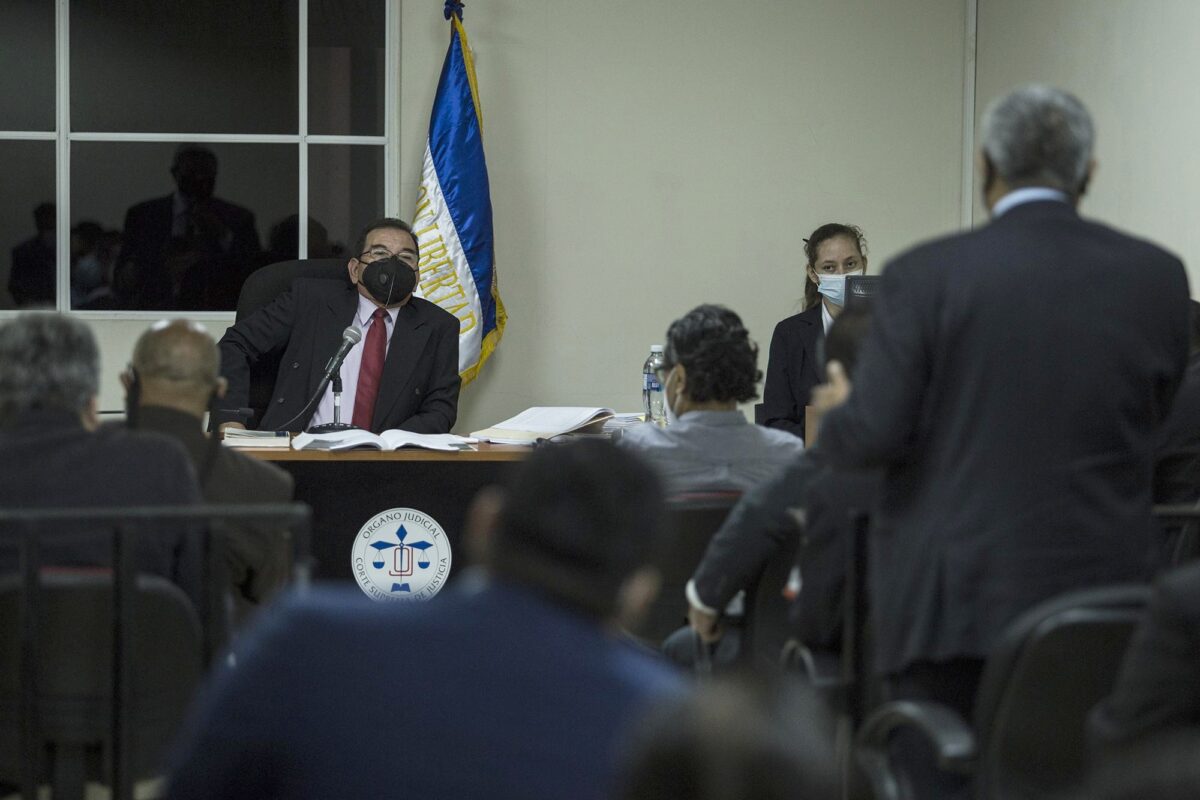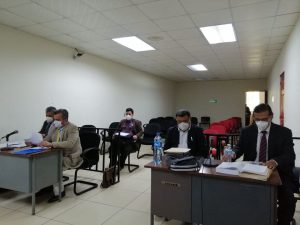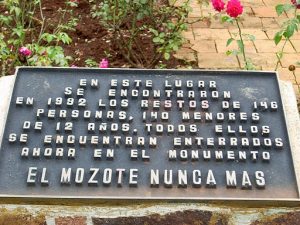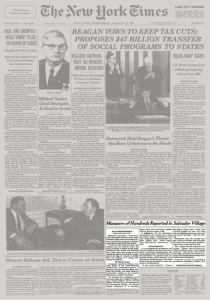Historical Memory, Human Rights
Will the military files be opened? Latest developments on “El Mozote” trial
EL FARO reports:
The presidency of Nayib Bukele told Judge Jorge Guzmán, who reopened and has promoted the investigation of the El Mozote massacre (1981), that “there are secret military plans that cannot be revealed by the Ministry of Defense” because the Armed Forces protect “superior assets of a collective nature, such as national security, the defense of the State and the sovereignty of El Salvador“. That is the position that the lawyer José Ángel Pérez Chacón established in a hearing that the San Francisco Gotera Investigating Court held, this August 28, to coordinate how the judicially ordered inspections of military files will be carried out.
Judge Guzmán rejected the argument that revealing military plans from 40 years ago would affect national security interests and clarified to the representative of the presidency that the hearing was not to discuss whether the files were to be opened or not, but to plan how to do it. “The judicial decision, lawyer, is taken. What proceeds is its execution. Your observation is noted, however, that does not prevent the judicial decision from being upheld. I would ask, through you, if what you have said is the opinion of the Presidency, that this be reconsidered“, said the judge. “Judicial decisions are not negotiated, nor are they pleaded. They are imposed”, added Guzmán in his answer.
On November 15, 2019, the Bukele administration, like the Sánchez Cerén administration, told the judge that the Defense Ministry does not have military files, the same response given by the Arena governments since 1990 when the criminal investigation of El Mozote began. But with one difference: the Bukele government said it was willing to allow physical inspections of military compounds.
Judge Guzmán seized that opportunity and ordered on June 15 of this year the inspections in eight military headquarters, so that experts could review the files. At the base of this order are the suspicions of the court that the Army is hiding useful information to clarify the truth of a military operation that killed almost a thousand peasants, half of them minors. In his order to inspect, the judge pointed out “irregularities” such as that in the service record of Colonel Domingo Monterrosa, commander of the Atlacatl Battalion, his participation in the “Morazán Rescue Operation” that turned into a massacre does not appear.
José Cruz Vigil and Óscar René Tobar Claros also appeared in court, as representatives of the victims, “the most important subject in the criminal process,” according to Judge Guzmán. Two delegates from the U.S. Embassy were also among the audience “as international observers to follow up on this case and the justice system,” one of them told El Faro. The embassy has been monitoring the case for years. The U.S. government was involved in the financing and training of the troops that massacred in El Mozote, then in the cover-up of the case and, more recently, in the declassification of files in this regard.
El Mozote trial restarted four years ago. The first criminal complaint took place in this same courthouse on October 26, 1990. The case progressed with difficulties and against the efforts of the State until 1993, when it was closed after the amnesty law was passed. That amnesty law was declared unconstitutional in July 2016, two months before Judge Guzmán took up the case. In that 23-year period, the victims did not surrender and, in 2012, obtained the sentence of the Inter-American Court of Human Rights against the Salvadoran State for the massacre.
Since 2016, the judge has conducted interviews with more than 43 surviving witnesses, forensic experts, military experts and information requests, in an arduous process that the Supreme Court recognized by easing the workload of the judge, so that he would stop processing civil and labor cases as well. as he had been doing until 2019. This year, the trial, like almost everything, has slowed down due to the suspension of legal proceedings caused by the covid-19 pandemic. For example, it took the court two months to swear in the experts who will participate in the military inspections because one of them, Velia Muralles, from Guatemala, is not in the country and the borders remain closed until mid-September. She was sworn in on August 18, virtually, after multiple protests by defense attorneys who demanded a face-to-face swearing in, which would have further delayed the process and trial. And in a case like El Mozote, time is a key factor. This year alone, four witnesses and one defendant have died. Of the 28 officers charged, only 13 are living. Yet.
This background helps to understand the impassive attitude shown by the judge when the defense attorneys presented arguments before and during the central part of the hearing. Defender Néstor Pineda, for example, opposed the participation of the expert witness Muralles in virtual form from Guatemala, with a screen installed in the courtroom, because he warned that she was not in the Salvadoran embassy in Guatemala.
The judge did not agree with any of these allegations and assured that these points had been surmounted in previous decisions. “In a previous resolution the inspection was ordered and it is firm. There is no room for discussion about it“, he warned. At the insistence of the lawyers, Judge Guzmán remained unchanged, ordered the lawyers to take their seats and assured that the lawyers were using delaying strategies.
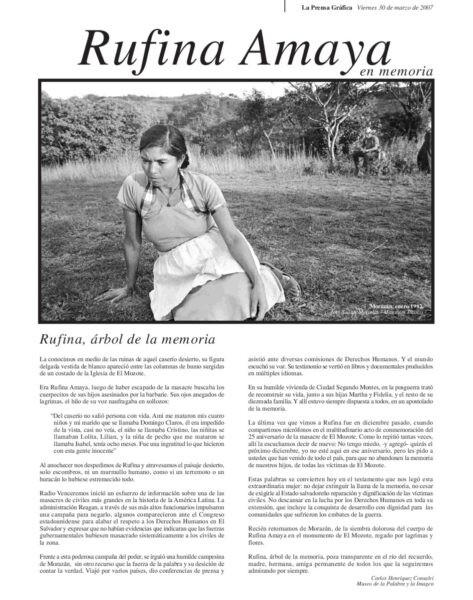
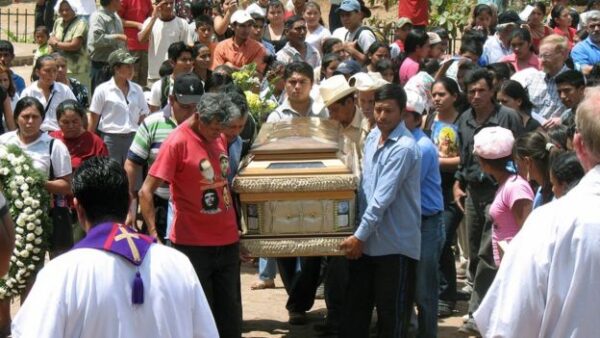
“What we have here now is, in my opinion, one of the most important steps: the inspection of files“, said the judge Guzmán. “There is a lot of relevant information that was not provided by the Ministry of Defense. I was very pleased with the president’s willingness to cooperate. Judicial decisions are not negotiated, they are not pleaded. They are imposed. And knowing the truth about this fact is imperative”, Guzmán added.
“There are people who have been waiting for justice for 39 years. They lost children, parents, they were displaced. Justice has been denied to them and all of us as a society are responsible”, he continued. He also recalled his 2018 resolution in which he declared these crimes against humanity and said that, for this reason, this case transcended just national interests.
Later, the lawyer Lisandro Quintanilla proposed the absolute nullity of the inspections, because he argued that the Constitution prohibits the disclosure of secret military plans, although the article he cited (168) speaks of the delivery of reports to the Legislative Assembly, not from judicial investigations. In the last of these confrontations, Judge Guzmán told the lawyer Quintanilla that he was “being patient with him” and Quintanilla protested: “for the record you are violating the right of defense”, before taking his seat.
The envoy of the Presidency presented an identical position to that of the defense attorney Quintanilla. “We are talking about an inspection of extremely delicate files and when they refer to military plans, there are even some that our Constitution protects as secret military plans“, said attorney Pérez Chacón. “A methodology has to be put in place to establish the limit between relevant information (for) this criminal case and, (information) that compromise national security and the defense of the State..”, he said.
In reality, that limit requested by the Presidency has already been established in the order to carry out inspections. This is not a wild search. The resolution clearly lists the files that are the object of the investigation and the documents sought: the “1981 military plan for Operation Rescate”, “plans for military operations in the country between 1980 and 1984” as well as “military plans at national level during the war and its annexes”. It also looks for “military regulations during the war”, such as executive regulations and decrees or training and function manuals; “High Rank’s General Orders”, “military intelligence analysis”, “periodic reports of operations, reports of supervision and control of operations, availability of resources to deploy operations” and other “administrative documents related” to the operation of El Mozote and near-by villages.
In his response, the judge rejected the interpretation of the Presidency on secrecy and cited the Law on Access to Public Information, which establishes that “the reserved nature may not be invoked when it comes to the investigation of serious violations of fundamental rights or crimes of international importance”, as is the case of El Mozote.
“There is no reason to refuse“, said the judge, and exemplified that the Ministry of Defense has already sent military plans for 1985 or 1986. Those documents, according to the judge, “no longer have relevance today other than to clarify cases of human rights violations”. Colonel Vanegas, representative of Defense, also asked the judge if the expert “of Guatemalan origin is going to access information concerning national security.” The June 15 resolution clarifies that Muralles will be the team coordinator, but the judge explained it again and said that there is no prohibition for foreign experts to intervene. He also clarified that Muralles – who has worked with the historical archive of the National Police of Guatemala – is not linked to any military institution in that country, as suggested by Colonel Vanegas.
The judge scheduled the inspections between September 21 and November 13. The teams will work from eight in the morning to four in the afternoon and Judge Guzmán will preside their activities. The experts will then have one month to present their report with a deadline of December 11, coinciding with the 39th anniversary of the massacre.
From September 21 to October 16, searches will be carried out in different units of the General Archive of the Armed Forces. From October 19 to 23, the archives of the Air Force and the Artillery Brigade “Coronel Óscar Osorio” will be inspected. From October 26 to 30, the archives of the Press Committee of the Armed Forces (COPREFA) and the General Archive of the Nation will be reviewed. Finally, between November 2 and 13, the experts will travel to the east to inspect the files of the Third Infantry Brigade in San Miguel and of the Military Detachment number 4, in San Francisco Gotera.
The judge ordered the Presidency, the Ministry of Culture and Defense to define a list of personnel who will provide care in each place and to report it to the court. He also asked the National Police for a 24-hour security operation and established a precautionary measure to all officials who guard these files, to prevent those files from moving, hiding or stealing.
Read the entire article in Spanish here.

